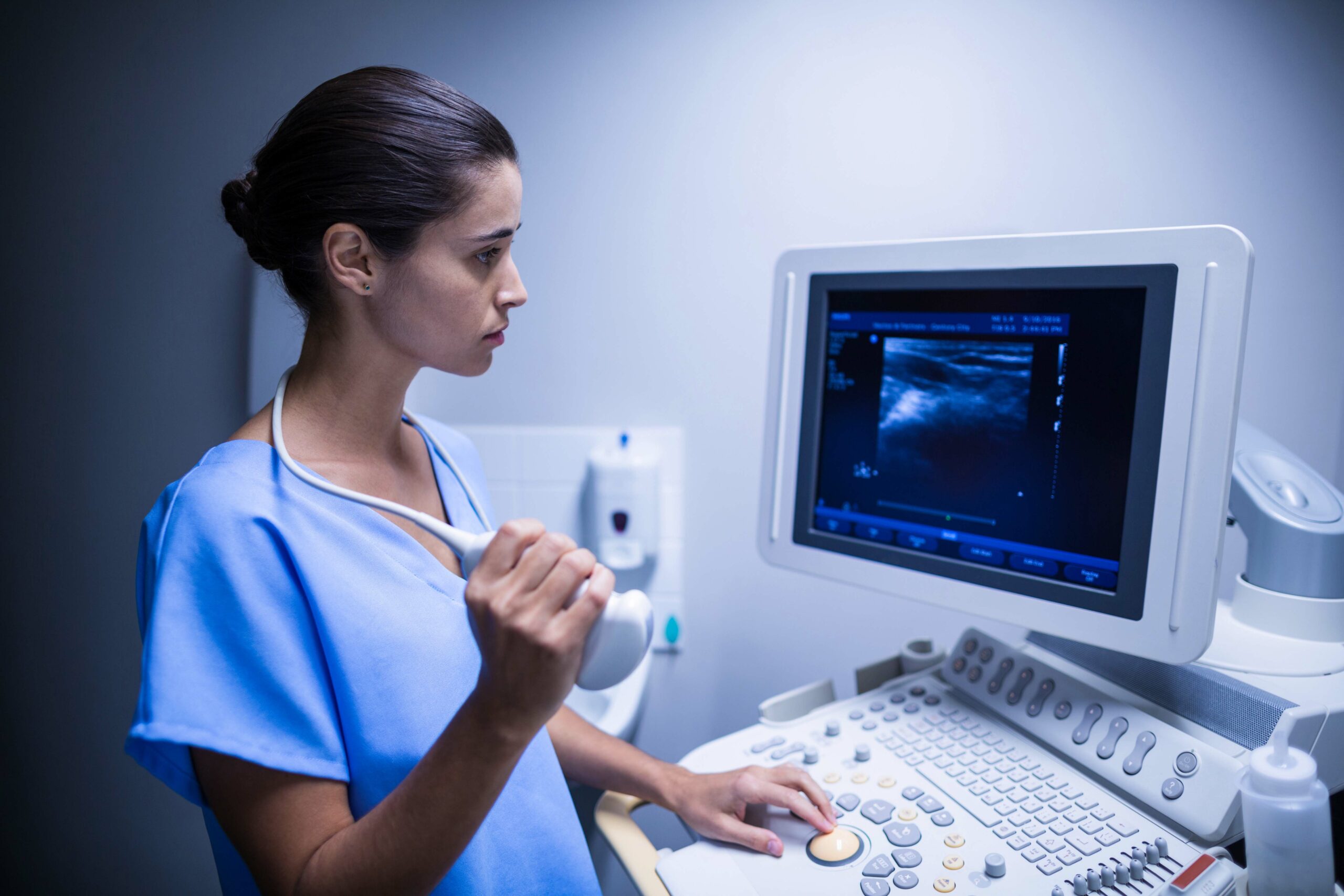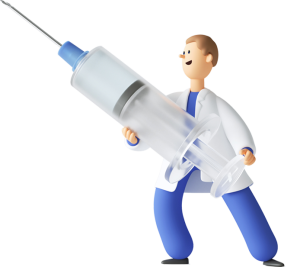
Fertility Evaluation Test
For Both Partners
Infertility is when a woman does not achieve a pregnancy after a year of unprotected intercourse.
Fertility Evaluation Test
For Both Partners
Infertility is when a woman does not achieve a pregnancy after a year of unprotected intercourse.
Fertility Evaluation Test For Both Partners
Infertility is when a woman does not achieve a pregnancy after a year of unprotected intercourse.
Fertility Evaluation Tests For Both Partners
Infertility is when a woman does not achieve a pregnancy after a year of unprotected intercourse.
Medical History Assessment
At the initial visit, the fertility specialist will ask questions about the woman’s/couples medical history. Learning about the patient/couple is essential in understanding each individual’s specific situation and at Anaahita, the fertility doctor will take as much time as necessary to get to know you.
Diagnostic Testing and Evaluation
Being at the forefront of science and technology is a critical part of fertility care. Our brand new, state-of-the-art laboratories are fully equipped to execute all of the required tests and services to give you the very best options and opportunities for a healthy pregnancy. When we begin our work together, we assess all areas of your health (and your partner’s) to evaluate any potential causes of your infertility. Based on the findings in these assessments, diagnostic testing will be performed. When we begin our work together, we assess all areas of your health (and your partner’s) to evaluate any potential causes of your infertility.
Diagnostic Testing
and Evaluation
Being at the forefront of science and technology is a critical part of fertility care. Our brand new, state-of-the-art laboratories are fully equipped to execute all of the required tests and services to give you the very best options and opportunities for a healthy pregnancy. When we begin our work together, we assess all areas of your health (and your partner’s) to evaluate any potential causes of your infertility. Based on the findings in these assessments, diagnostic testing will be performed. When we begin our work together, we assess all areas of your health (and your partner’s) to evaluate any potential causes of your infertility.
Prenatal Tests
At the initial visit, the Other hormones are also important to evaluate because they too can affect your fertility. For example, the fertility doctor will want to make sure your thyroid is working well, and that your prolactin levels are normal. They will also want to make sure you are well and healthy and don’t have issues with anemia, diabetes, or vitamin D deficiency.
Sonogram (Ultrasound)
On the second/third day of your menstrual cycle, the fertility doctor will perform a transvaginal ultrasound to get a closer look at your uterus and ovaries. The pelvic ultrasound can diagnose such problems as an abnormally shaped uterus or cysts in the ovaries and can be used to do an antral follicle count (a count of the number of follicles in your ovaries that month).
Ovarian Reserve Tests
Blood tests are done on the second/ third day of your menstrual cycle to assess where you are with your ovaries. The second/third day is important because this is when your ovaries are at baseline. As you go through your menstrual cycle, your hormones go up and down and up and down again, so the third day allows the fertility specialist to really interpret what is going on. We will evaluate your FSH (follicle-stimulating hormone), your Estradiol, and your AMH (anti-Müllerian hormone).
Hysterosalpingogram
A Hysterosalpingogram is a procedure using an X-ray image of a woman’s fallopian tubes and uterus. The fertility specialist will insert a catheter (small tube) containing dye into the cervix that will help the structure of the uterus and fallopian tubes show up on the X-ray. This procedure can help determine if your fallopian tubes are open or blocked. It can also assess your uterine cavity for polyps and fibroids, or for an abnormal shape.
Fertility Tests for Women
Hormonal testing and evaluation of pelvic anatomy is as important as understanding the lifestyle and past history of a woman.

Medical History Assessment
At the initial visit, the fertility specialist will ask questions about the woman’s/couples medical history. Learning about the patient/couple is essential in understanding each individuals specific situation and at RHWC, the fertility doctor will take as much time as necessary to get to know you.
Prenetal Tests
Other hormones are also important to evaluate because they too can affect your fertility. For example, the fertility doctor will want to make sure your thyroid is working well, and that your prolactin levels are normal. They will also want to make sure you are well and healthy and don’t have issues with anemia, diabetes, or vitamin D deficiency.
Sonogram (Ultrasound)
On the third day of your menstrual cycle, the fertility doctor will perform a transvaginal ultrasound to get a closer look at your uterus and ovaries. The pelvic ultrasound can diagnose such problems as an abnormally shaped uterus or cysts in the ovaries and can be used to do an antral follicle count (a count of the number of follicles in your ovaries that month).
Sonohysterogram
A sonohysterogram, or saline infusion sonogram, uses saline to fill the uterine cavity while looking at the uterus with a transvaginal ultrasound. This procedure helps diagnose irregular growths like fibroids or polyps which can affect the ability of the embryo to implant and grow.
Ovarian Reserve Tests
Blood tests are done on the third day of your menstrual cycle to assess where you are with your ovaries. The third day is important because this is when your ovaries are at baseline. As you go through your menstrual cycle, your hormones go up and down and up and down again, so the third day allows the fertility specialist to really interpret what is going on. We will evaluate your FSH (follicle-stimulating hormone), your Estradiol, and your AMH (anti-Müllerian hormone).
Hysterosalpingogram
A hysterosalpingogram is a procedure using an X-ray image of a woman’s fallopian tubes and uterus. The fertility specialist will insert a catheter (small tube) containing dye into the cervix that will help the structure of the uterus and fallopian tubes show up on the X-ray. This procedure can help determine if your fallopian tubes are open or blocked. It can also assess your uterine cavity for polyps and fibroids, or for an abnormal shape.
Fertility Test for Women
At Reproductive Health and Wellness Center, the following tests for female infertility are performed by the fertility doctor:

At the initial visit, the fertility specialist will ask questions about the woman’s/couples medical history. Learning about the patient/couple is essential in understanding each individuals specific situation and at RHWC, the fertility doctor will take as much time as necessary to get to know you.
Other hormones are also important to evaluate because they too can affect your fertility. For example, the fertility doctor will want to make sure your thyroid is working well, and that your prolactin levels are normal. They will also want to make sure you are well and healthy and don’t have issues with anemia, diabetes, or vitamin D deficiency.
On the third day of your menstrual cycle, the fertility doctor will perform a transvaginal ultrasound to get a closer look at your uterus and ovaries. The pelvic ultrasound can diagnose such problems as an abnormally shaped uterus or cysts in the ovaries and can be used to do an antral follicle count (a count of the number of follicles in your ovaries that month).
A sonohysterogram, or saline infusion sonogram, uses saline to fill the uterine cavity while looking at the uterus with a transvaginal ultrasound. This procedure helps diagnose irregular growths like fibroids or polyps which can affect the ability of the embryo to implant and grow.
Blood tests are done on the third day of your menstrual cycle to assess where you are with your ovaries. The third day is important because this is when your ovaries are at baseline. As you go through your menstrual cycle, your hormones go up and down and up and down again, so the third day allows the fertility specialist to really interpret what is going on. We will evaluate your FSH (follicle-stimulating hormone), your Estradiol, and your AMH (anti-Müllerian hormone).
A hysterosalpingogram is a procedure using an X-ray image of a woman’s fallopian tubes and uterus. The fertility specialist will insert a catheter (small tube) containing dye into the cervix that will help the structure of the uterus and fallopian tubes show up on the X-ray. This procedure can help determine if your fallopian tubes are open or blocked. It can also assess your uterine cavity for polyps and fibroids, or for an abnormal shape.
Fertility Test for Women
At Reproductive Health and Wellness Center, the following tests for female infertility are performed by the fertility doctor:

Fertility Tests for Men
At Anaahita Fertility Clinic, the following tests for male infertility are performed by the fertility doctor:

Semen Analysis
A semen analysis is used to evaluate the sperm quantity and quality in the ejaculate. A semen analysis will check to see how many sperm there are, how well they are moving, and how pretty they look under the microscope.
Blood Testing
In cases of poor sperm results, blood tests can sometimes be done to check hormone levels and can be done to evaluate any potential genetic issues.
Special Tests
In cases of poor sperm results, advanced tests like DFI(DNA Fragmentation Index), CANROS, etc. are performed.
Sonogram (Ultrasound)
A trans-scrotal ultrasound can be performed to evaluate for any dilated veins or structural abnormalities. Once we have a full and complete diagnosis, we’ll create a detailed, individualized fertility plan that addresses each issue you’re facing, and supports every area of your health. Our highest goal is your fertility success, and by providing science-driven experience, cutting-edge technology, and whole-person, comprehensive care, we know we will give you a much better chance at achieving your dream of a healthy pregnancy.
Fertility Test for Men
At Reproductive Health and Wellness Center, the following tests for male infertility are performed by the fertility doctor:

Semen Analysis
A semen analysis is used to evaluate the sperm quantity and quality in the ejaculate. A semen analysis will check to see how many sperm there are, how well they are moving, and how pretty they look under the microscope.
Blood Testing
In cases of poor sperm results, blood tests can sometimes be done to check hormone levels and can be done to evaluate any potential genetic issues.
Sonogram (Ultrasound)
An trans-scrotal ultrasound can be performed to evaluate for any dilated veins or structural abnormalities. Once we have a full and complete diagnosis, we’ll create a detailed, individualized fertility plan that addresses each issue you’re facing, and supports every area of your health. Our highest goal is your fertility success, and by providing science-driven experience, cutting-edge technology and whole-person, comprehensive care, we know we will give you a much better chance at achieving your dream of a healthy pregnancy.

